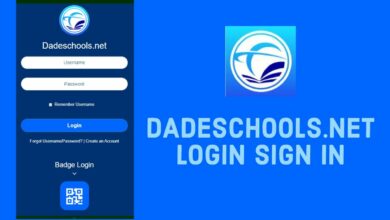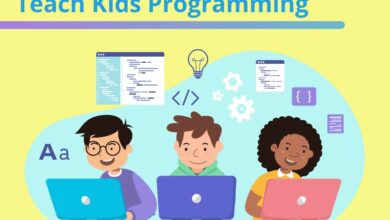Basic Important Facts for Online Education You Should Know About

Table of Content
Education has always been of paramount importance. Conventional education has always been normal, but online classes’ recent development has made the future of traditional classrooms questionable.
The newer version of education is doing great with the children because of the friendly facilities they offer. The benefit of doing classes from home has taken the young children’s liking away from the conventional type of studying.
Let us now read a few important facts about online education, which might just become a constant system.
1. Online learning is setting down deep roots:
Since 1986, when the principal online degree program from a licensed establishment was offered (by John F. Kennedy University in Orinda, California), development has been remarkable. Today, 33% of America’s 21 million enlisted students are taking a few or the entirety of their guidance on the web.
The eleven-year concentrate by the Babson Survey Research Group shows more than 7,000,000 online enrolments in the fall semester of 2013. Trevon provides online PHP assignment help to students. He thinks that the development of online classes has made the students more reluctant to work hard.
2. There is no critical distinction in learning results:
Approximately 30 years of examination, including that of the U.S. Division of Education, has discovered no proof that online learning is subjectively mediocre compared to that obtained in a conventional classroom. Shockingly, the individuals who have lectured online learning’s “comfort” for such a long time have persuaded that this signifies “simple,” which isn’t accurate.
Online courses can be pretty much thorough, relying upon the educator who builds up the course and the scholarly office that audits it. It is also essential to note that, given the “anytime, anywhere” nature of online instruction, it allows for maximum student readiness to learn instead of fixed-time-and-place classroom setups.
Employing modern adaptive technologies, it is possible to consolidate a student’s learning system in the organization and delivery of instruction.
There is growing reason to believe that online learning can surpass that of the typical classroom for certain students with such features.
3. Online learning is boundless:
A lot of locally licensed organizations of advanced education are currently offering web access. This incorporates tip-top foundations, including Harvard University, the University of California-Berkeley, and the University of Chicago. Online learning has made it very easy for me to do my homework from anywhere, anytime.
4. There is no single type of online learning:
Taking in designs range from text-just “electronic correspondence courses” to sight and sound-rich contributions highlighting a serious level of intuitiveness, admittance to outer connections, movements, and top-notch recreations. Notwithstanding, a large portion of what is presently offered, particularly by open establishments, is at the less-modern finish of the range.
For schools that can bear the cost of the more modern forms, the current age of courses is creating prevalent culmination rates and better learning results. Excelsior College again gives a representation. It has spent more than $100,000 per course to help the online rendition of its partner degree nursing program. Its completion rates are 96%, with demand growing.
But the amount budgeted by most institutions for a single three-credit-hour course is typical $10-$20 thousand, resulting in a product that is less interactive, less eye-appealing, and less engaging. These flaws probably raise student’s dropout rates.
5. MOOCs are not an illustration of top-notch internet learning:
As opposed to insights made by the media, Massive Open Online Courses’ (MOOCs’) chief advantage to students isn’t their learning results, yet their cost. The way that such “super courses” can issue from first-class marks, like MIT, Harvard, and Stanford, has driven some to assume that they have developed another type of online learning.
They have not. Besides, the thought—”In the event that it comes from the world-class schools, it should be acceptable”— is a mistake. What has MOOC executed a psychometrically arranged, broadly normed appraisal as a feature of its result estimation? Absence of such metrics, it is hard to know whether anybody has learned without a doubt.
This may clarify MOOCs’ ordinary, 90 or more percent attrition rate, along with the information that “conventional” online courses offer significant staff-student communication, customized attention, adaptability, and regard for results.
6. “Institutional” cost savings from going online are less than is often acknowledged:
The lone space of incredible investment funds for schools is the diminished requirement for classroom facilities. For grown-up students, there additionally is no requirement for amusement and extracurricular help administrations.
Nonetheless, regardless of whether physical or virtual, there stays the requirement for the whole range of enrolment of the executives’ administrations, just as an upgraded need for IT support. Students reserve funds is the place where we track down the genuine distinction.
Those considering on the web can be anyplace on the planet, have no driving expenses, no childcare costs, and no lost pay from the need to concentrate nearby all day. Here, the reserve funds can be significant. You can also get accounting assignment help online from some of the best teachers who provide online courses.
7. Online learning might be the future:
Online learning could soon become the norm for “post-traditional” and graduate students who cannot afford the opportunity cost of traditional programs. All things considered, while online learning is digging in for the long haul, neither the private grounds nor the lead research college will disappear.
Society consistently will require the grounds-based alternative to help our childhood become grown-ups and residents. Society likewise will consistently require the exploration of serious foundations to proceed with the mission for new disclosures and to give the substance that online learning conveys so well.




